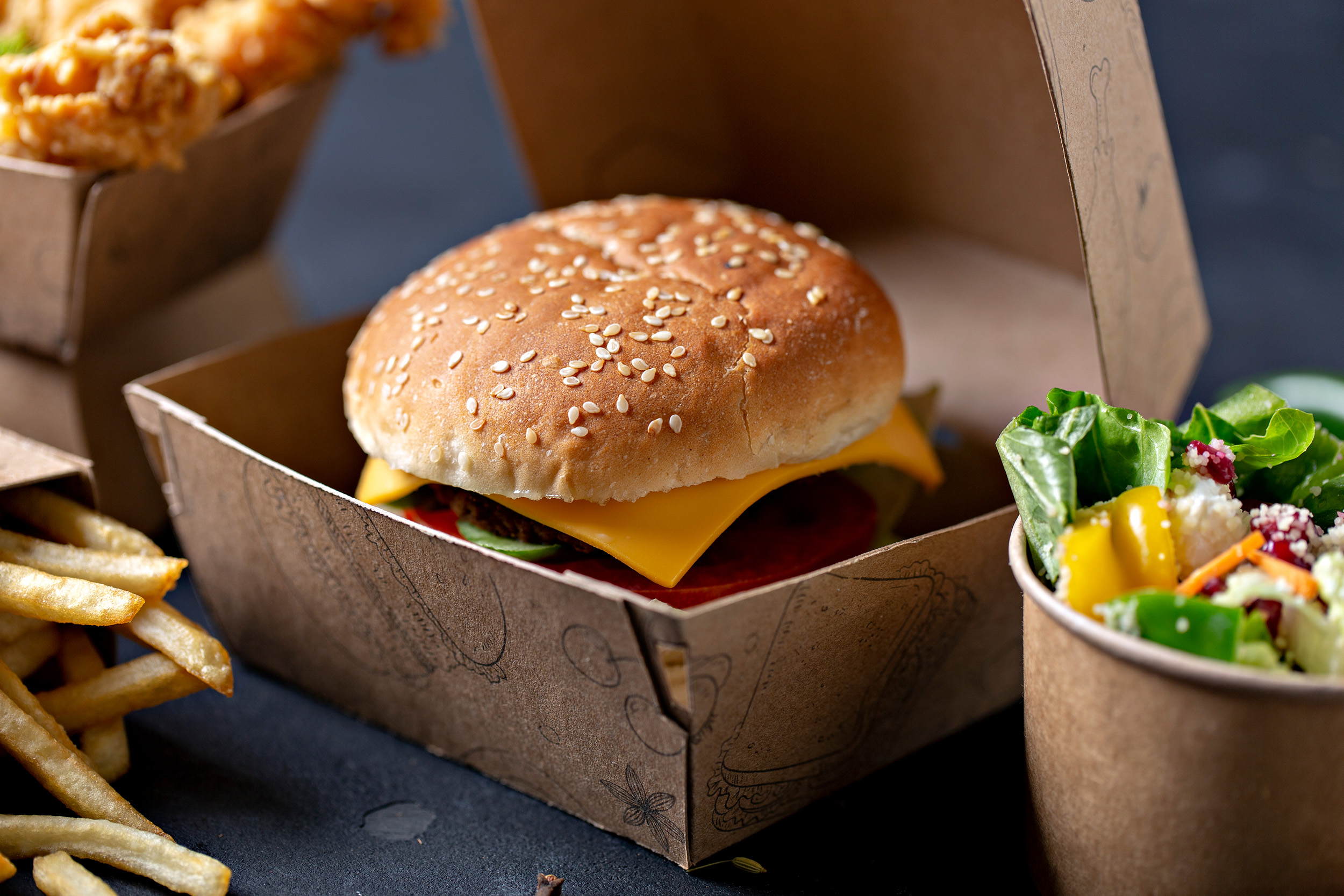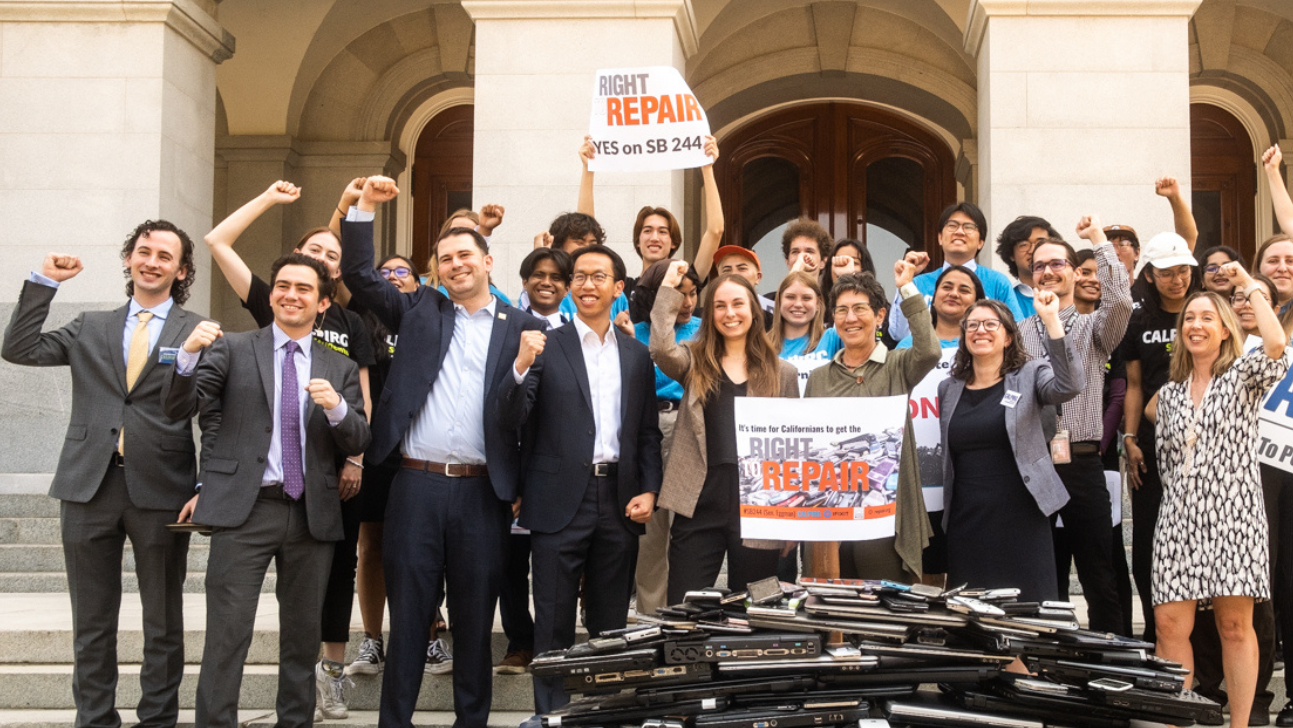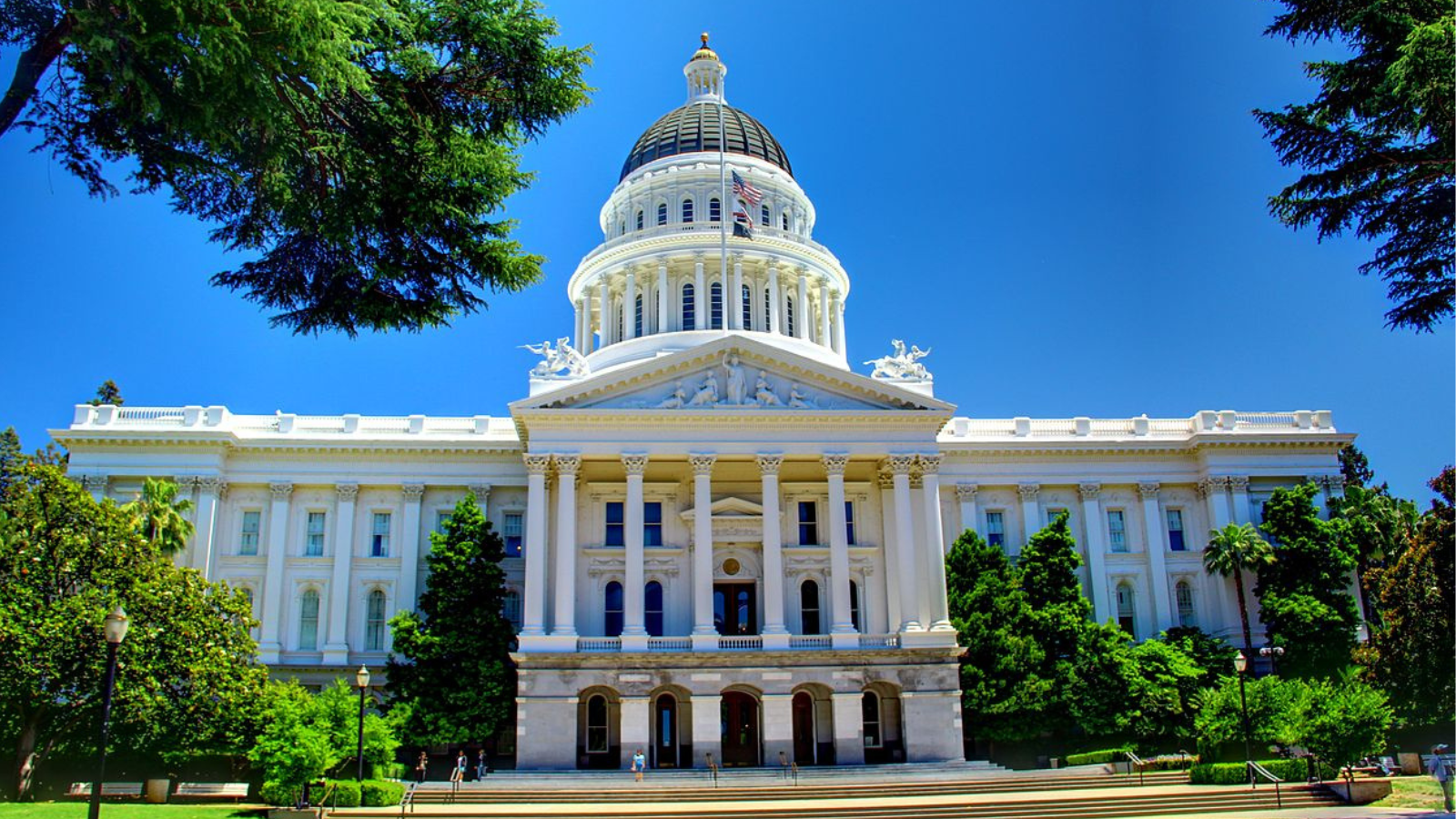
CALPIRG-backed bills going into effect in January
Starting Jan. 1, new laws go into effect in California that reduce exposure to toxic chemicals, clean our air, increase transparency from the fossil fuel industry, and help our communities electrify transportation.

The state legislature has given Californians good reasons to cheerfully ring in the new year. Starting Jan. 1, new laws go into effect in California that reduce exposure to toxic chemicals, clean our air, increase transparency from the fossil fuel industry, and help our communities electrify transportation.
Here’s a digest of some of the CALPIRG-backed laws going into effect on New Year’s Day.
Limiting exposure to toxic PFAS
The Safer Food Packaging and Cookware Act, AB 1200 (Ting) bans the use of toxic PFAS in paper food packaging. PFAS, or per- and polyfluoroalkyl substances, are a class of thousands of chemicals found in food packaging, including microwave popcorn bags, some fast food wrappers and many compostable containers. PFAS are nicknamed ‘forever chemicals’ because they resist breaking down in our bodies and the environment. Research has linked PFAS to serious health risks, including liver damage, birth defects and cancer. Starting in January, Californians will no longer need to worry if their takeout containers and other food packaging will expose their families to these toxic chemicals. Starting in 2024, the law also requires manufacturers of cookware to disclose if PFAS was added to their products.
Get the lead out
Lead is a highly toxic metal that’s especially dangerous for children — impairing how they learn, grow and behave. According to the Centers for Disease Control and Prevention, there is no safe level of lead exposure in water for children. Despite that, “endpoint devices” such as faucets have been allowed to leach high amounts of lead. Assembly Bill 100 (Holden) restricts the amount of lead seeping from faucets and fixtures to no more than 1 microgram per liter of water, ensuring that faucets and fixtures in California are practically lead-free. Starting in January, the law will prohibit manufacturers from importing faucets that leach excess lead into California, and from selling non-compliant faucets starting in July 2023.
Energy and environment
We’ve known for decades that pollution from fossil fuels is dirty and dangerous. California is continuing to lead the nation by protecting communities from oil and gas extraction while speeding up our transition to a future powered by 100% renewable energy.
- Senate Bill 1020 (Laird) sets ambitious benchmarks to accelerate our commitment to 100% clean electricity, building on the work CALPIRG did in 2018 to pass California’s landmark 100% clean electricity law (SB 100).
- Oil and gas companies extract fuel from the ground startlingly close to homes, schools, hospitals and places of worship, leading to increased risk of asthma, complications during pregnancy and elevated cancer risk among nearby communities. Senate Bill 1137 (Gonzalez, Limon) creates a 3,200-ft (1km) health and safety buffer zone around oil and gas wells in the state. While this law will go into effect on Jan. 1, petroleum companies are pushing for a public referendum. If the oil and gas companies get enough support to get the referendum on the ballot, voters will decide if the buffer zones should remain.
Reducing harmful incineration
Current California law requires cities to divert at least 50% of their waste away from landfills and into waste reduction, recycling, reuse and composting activities. However, diverting waste to incinerators that burn trash has counted towards this requirement. Burning trash is not recycling and the process pollutes our air with harmful chemicals. Assembly Bill 1857(C. Garcia) lists incineration as a form of “disposal” and no longer allows jurisdictions to include it in their landfill diversion plan.
Oil company profit transparency
While we strive for a California where the price of gas doesn’t matter because renewable energy powers our cars, trucks and buses, in the meantime, we need to make sure California oil refiners are not profiteering. Californians pay more at the pump than drivers in any other state — currently about $1.23 more per gallon of gasoline than the U.S. average. California oil refiners claim that’s because of the state’s environmental rules and higher taxes, but those costs add only 60 cents extra per gallon. It’s unclear where the rest of the difference comes from — or who it goes to. Senate Bill 1322 (Allen) will expose how much oil refiners profit in California. The new law requires monthly disclosure by California oil refiners of their per gallon profits in the state.
Electric transportation
Transportation is the number one contributor to greenhouse gas emissions in California. To reduce harmful emissions and clean up our air, we need to electrify our transportation system. Several measures go into effect this January that will help the state accomplish that.
- Senate Bill 372 (Leyva) directs the California Air Resources Board and the state treasurer’s office to offer a suite of financial incentives to help owners of medium- and heavy-duty trucks and buses pay for the costs of replacing their diesel-fueled fleets with cleaner, zero-emission alternatives.
- Senate Bill 1305 (Laird) makes it easier for state agencies to buy all-electric light-duty cars.
- Assembly Bill 970 (McCarty) helps streamline the process for electric vehicle charging station permitting, which is a vital first step in establishing needed electric vehicle infrastructure. The law became operative in 2022 for every city or county with a population exceeding 200,000 residents, and starting Jan. 1, applies to cities or counties with fewer than 200,000 residents.
Topics
Authors
Jenn Engstrom
State Director, CALPIRG
Jenn directs CALPIRG’s advocacy efforts, and is a leading voice in Sacramento and across the state on protecting public health, consumer protections and defending our democracy. Jenn has served on the CALPIRG board for the past two years before stepping into her current role. Most recently, as the deputy national director for the Student PIRGs, she helped run our national effort to mobilize hundreds of thousands of students to vote. She led CALPIRG’s organizing team for years and managed our citizen outreach offices across the state, running campaigns to ban single-use plastic bags, stop the overuse of antibiotics, and go 100% renewable energy. Jenn lives in Los Angeles, where she enjoys spending time at the beach and visiting the many amazing restaurants in her city.
Find Out More

Three big wins for the public interest in 2023

New laws to be implemented in 2024

Looking back on 2023 – Highlights from the past year

